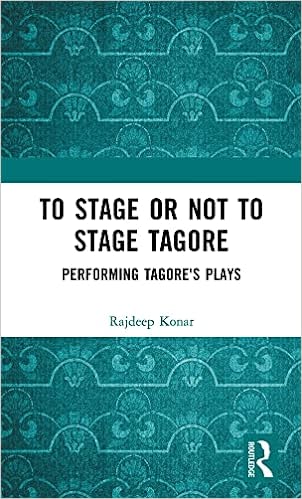
English | 2022 | ISBN: 1032389257 | 435 pages | True PDF | 18.09 MB
Rabindranath Tagore (1861‒1941) was a prolific playwright with more than thirty plays to his credit. He is also known for his life-long, passionate engagement with theatre, first at Jorasanko and then at Santiniketan, in multiple roles as actor, director, singer, musician. However, during his own life-time and even after his demise, his experimental plays have proved challenging for directors to stage. Time and again they have been written off as unstageable by prominent theatre makers. Further complications have arisen from the presence of a spectre of authority around Tagore and his plays often promoted by Visva-Bharati, the institution he founded and which held the copyright of his works till 2001. This book travels through time and space intending to untangle the enigma presented by Tagore's plays. The book on one hand immerses itself into the archive of Tagore's plays and his dramaturgy of them in order to problematize the ways in which they have been interpreted. On the other, it also engages with productions of Tagore's plays during and after his life-time to understand the challenges directors have faced while staging them and the strategies they have embraced to circumvent them. While performing a subjective critical reading of the Tagore theatre-archive, an underlying objective of the book remains to understand the very concept of the archive, as it manifests itself in contemporary dramatic theatre.
Links are Interchangeable - No Password - Single Extraction



